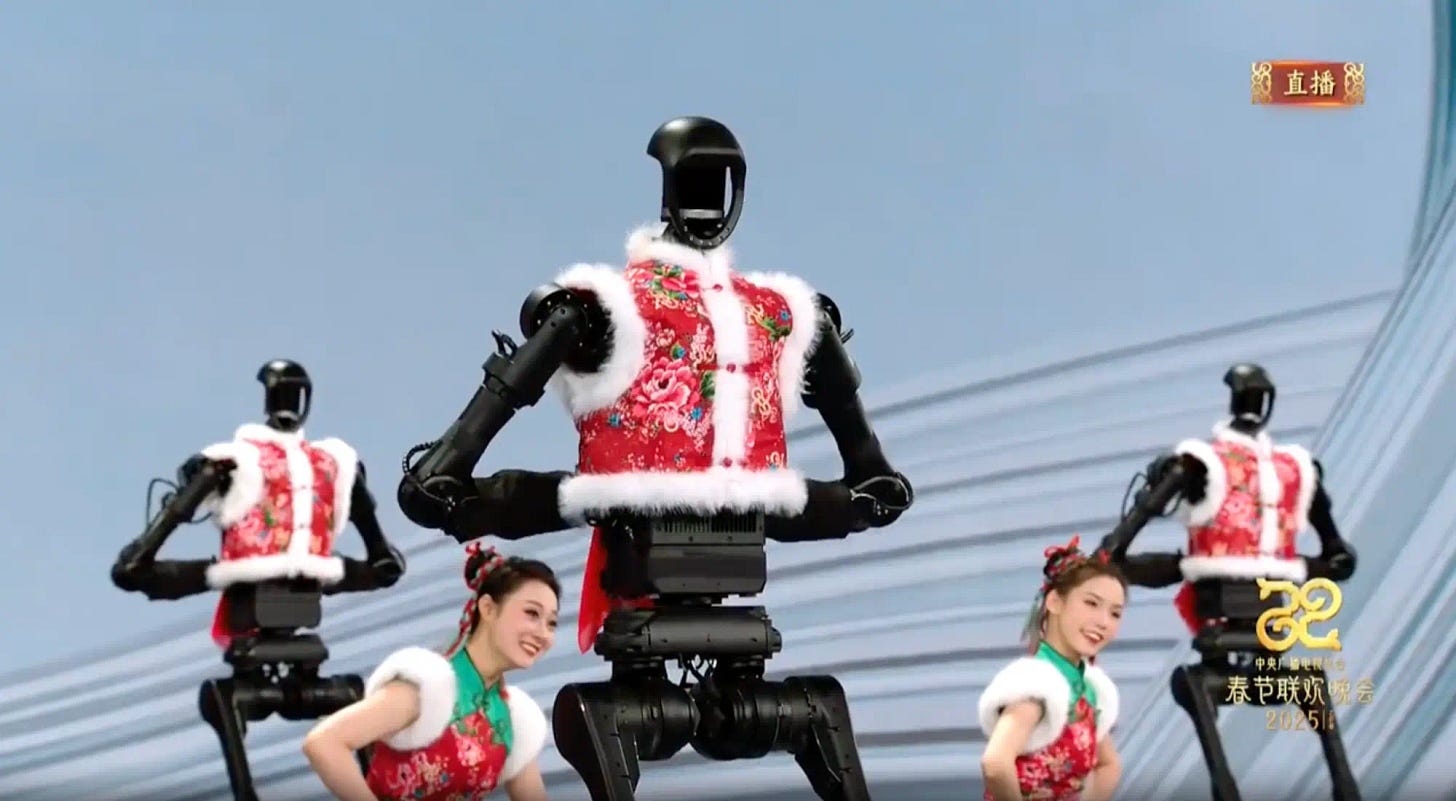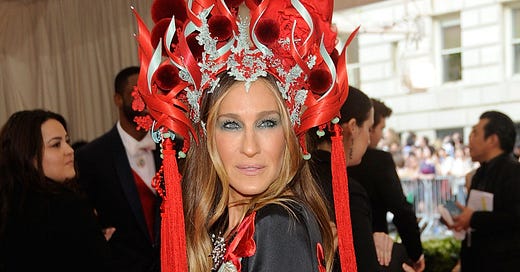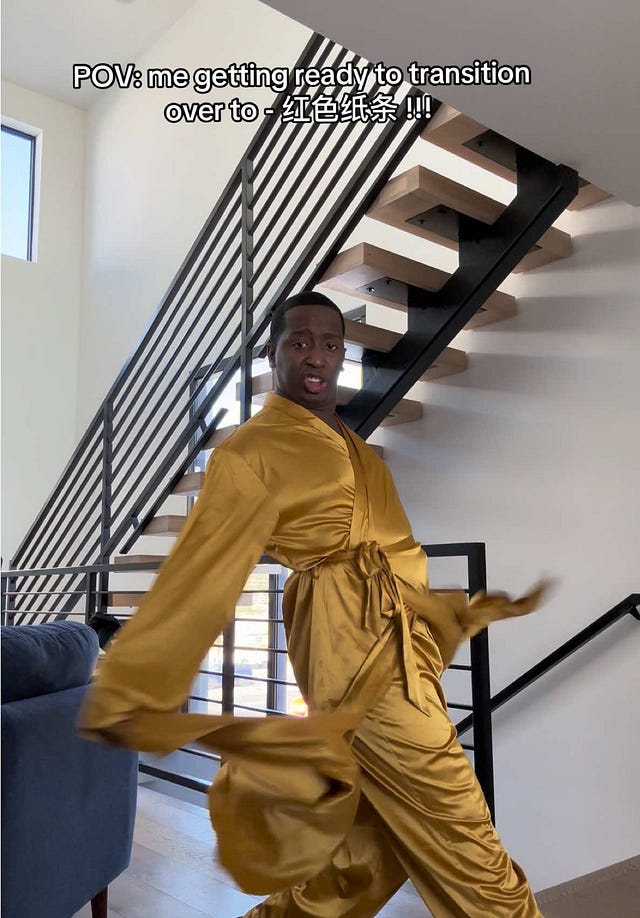What's Asian American, anyway?
thoughts from a chinese american gworl between a wok and a hard place
Lately, it feels like Asians are everywhere in Western news, from frothy matchas to 20-step Korean skincare routines promising eternal youth. Last week, that was especially evident, with China’s DeepSeek edging ahead in the AI arms race and Lunar New Year celebrations in full swing.

A few years ago, if you’d asked the average American, “Can you name five famous Asians?” they’d rattle off Jackie Chan, Bruce Lee, and – if they were feeling intellectual – Confucius. The BTS members would count as one answer, followed by, “Wait, how do you tell them apart?” But when I recently posed this question to my friends, it was clear the landscape had shifted.

As Asians gain more visibility, it’s intriguing to dissect how they’re perceived. Take the TikTok ban spectacle: one minute, Shou Chew is the internet’s soft-spoken darling who’s defending our sacred right to free speech, the next, he’s the ultimate sycophantic turncoat for eating out of the Trump Administration’s hands. Asians have long been infantilized in Western eyes, where myths and reality are indistinguishable, so let us not conflate demeanor with intent, composure with virtue. Chew is not a symbol for your revolution, nor a fantasy. He’s a businessman with a bottom line.
Ahead of the TikTok ban, which was predicated on privacy concerns, Americans flocked to RedNote and pledged their data to their “Chinese spies.” That week, Duolingo reported a 216% increase in Mandarin learners. People renounced their citizenships, replaced “mom” for “lao ma,” and sang “Jin Sheng Yuan” into viral oblivion like they’d been handpicked for an exchange program.
Although I’m a sucker for an ironic plot twist, I had mixed feelings about my Chinese culture becoming the latest trend. On one hand, this was a refreshing departure from the usual bipartisan rhetoric painting China as a threat, be it Trump’s blatant xenophobia or Biden’s subtle fearmongering. Of course, we’ve seen this film before, tracing back to the 19th century’s yellow peril that demonized immigrants for tarnishing the white fabric of America. America’s prejudice reads like a fugly Karen, she never cedes, just swaps out its scapegoats on rotation. But now, people seemed to be waking up, nationalism’s walls were crumbling, and the door was open for more nuanced conversation.
On the other hand, there’s something to be said about watching dishes I got clowned for as a kid get heralded after an Instagrammable rebrand. Americans were learning Mandarin because it was trendy, rebellious, and most importantly, profitable. Stick it to the man, feed the algorithm, and gain a foothold in the attention economy. Since TikTok has been restored, some folks who swore allegiance to RedNote have fled faster than a summer flirtationship. It feels… opportunistic. Perhaps downright appropriative, to cash in on an identity aesthetic without any of the baggage or due respect.
Is it a matter of status? When your influence precedes your intentions, are you no longer just participating in culture, but branding it? When profit is baked into your very presence, can you ever truly not appropriate? Consider the 2015 Met Gala theme, “China: Through the Looking Glass”: touted as a tribute to Chinese influence, yet dominated by non-Asian celebrities parading couture by European fashion houses. Whether you’re a TikToker pushing the next alt-platform or an A-lister endorsing a brand, paychecks inexorably erode the line between appreciation and appropriation, which begets the question: when a culture becomes a trend, who’s actually benefiting?
There is no perfect model for cultural interface. (To answer the question, “Who belongs in Asian America?” it’s worth exploring all the possibilities: Can you marry in? Can you be brought in by association – enough Asian friends, enough hotpot invitations? Or is it an academic pursuit – do you watch K-dramas and read enough Murakami to earn honorary membership?) I don’t think belonging is something you can audit your way into. Rather, it's about living and breathing alongside a community, not just consuming their content through a screen. Rome wasn’t built in a day, neither are cultural ties. I saw discourse urging Americans to behave on RedNote because they were “guests,” naive tourists at best.
If you stroll into a party’s Asian-inspired theme in silk brocade but don’t have a single Asian friend or recall the last time you ate at an Asian family-owned joint, what exactly are you celebrating? Do you support Asian and Asian American businesses, media, stories? How can we trust your intentions if your investment only goes as deep as a Pinterest board? It is when you move beyond cosplay and engage meaningfully that you go from appropriation, to informed appreciation, to apprenticeship, and finally, authenticity.
(P.S. For Asian Americans inspired by Black and Brown polyculturalism, it takes an equal measure of mindfulness and desire to understand. To not waltz in with entitlement, demanding access. Trust isn’t given freely, and for good reason – history shows that when outsiders enter, something of value is often taken, and rarely returned.
P.P.S. Being Asian doesn’t exempt me from precipitating Western imperialism – I could still take up space in a way that drowns out other, traditional Asian voices. And of course, being ethnically Asian doesn’t automatically make someone an expert on the region. The Asian and Asian American communities are far from interchangeable, the Western Asian narrative shan't eclipse realities of Asians in Asia and vice versa. It is a fine balance, recognizing the privilege of my Western upbringing, the status tied to my citizenship, and the weight my voice carries because of them.)
I had a brief stand-up stint, where being caught in the crossfire of two global superpowers was a comedic goldmine: “I’m set no matter who wins WWIII! Neither side would shoot me! Do you know how much I could charge to run a bunker???” I’ve always viewed my Chinese American identity through a lens of self-deprecation, not pride. It was bestowed upon me, and it feels unfair to compare my identity to those who’ve had to fight through real systemic barriers to claim theirs. Flexing nationality or ethnicity, especially when it’s rooted in privilege, doesn’t sit right. Lately, we’ve been seeing free speech, once a core Western tenet, dismantle, the media now a playground for Orwellian censorship and manipulation. So, the real flex? Being able to critically think, embrace cultural plurality, and evolve your worldview.










This is a fantastic piece! From having a smelly lunchbox to our food being ‘trendy’ (cough matcha latte), what an odd feeling of whiplash…
This was a refreshing read! I’ve had similar thoughts before but struggled to express them in a way that doesn’t feel too unkind or gatekeepy—which is why my take on how Western criticism of Korean beauty standards is racist and Eurocentric is still sitting in my drafts LOL. But perhaps people who belong to Asian cultures shouldn’t feel obligated to baby the feelings of those who merely consume it. After all, if they truly “respect the culture,” they should be willing to listen to it.